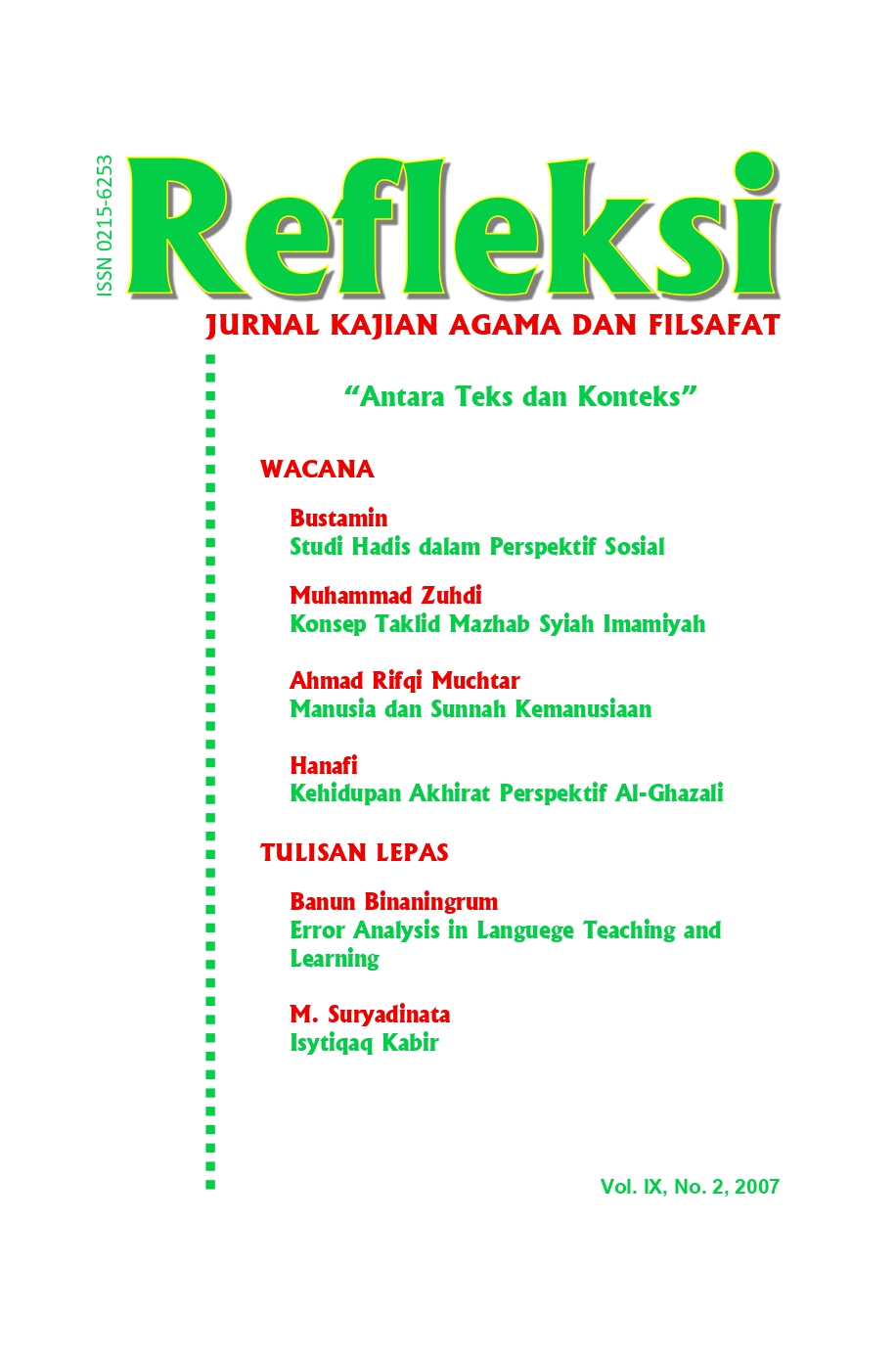Konsepsi Taklid Mazhab Syiah Imamiyah
DOI:
https://doi.org/10.15408/ref.v9i2.37434Keywords:
Taqlid, Shia, School of Thought, ImamiyyahAbstract
For a long time, the term “taqlid” has carried a negative connotation, especially when accompanied by the word “blind”. However, in the religious thought tradition of Shia Islam, the term "taqlid" holds a neutral meaning and, in fact, becomes a necessity for its followers. This is a logical consequence of the belief in imamah or leadership, which is one of the fundamental teachings of Shia Islam. Following the opinions of a marja taklid (highest religious authority) is considered obligatory and binding. A Shia adherent who does not obey the religious rulings issued by a mujtahid (jurisconsult) they follow will have all their religious practices deemed invalid. They place scholars on par with other professions, such as doctors and engineers, whose opinions are followed by their clients.References
Bahjat, Ayatullah Muhammad Taqi. Risalat Taudhih al-Masail, Qom: Intisyarat Syafaq, tt.
Khaidari, Allamah. Ushul Istinbat, Tehran: Dār al-Fikr, 1383.
Khumaini, Imam. Tahri al-Wasilah, Qom: Muassasah al-Nasyr al-Islāmī, 1424 H.
Shaduq, Syeh. Kamāl al-Dīn wa al-Tamām al-Nikmat, Jamkaran: Intisyarat Masjid al-Muqaddas Jamkaran, 1382 H.
al-Tabarsi, Syeh Abī ‘Alī al-Adl ibn al-Ḥasan. Majmā’ al-Bayān, Beirut: Dār al-Ma’rifat, 1987.
Zadeh, Musalami. Rasaley-e Tahdhih al Masail Syisy Marja, Qom: Muasseseh Muthala’ati Muntadziran Mau’ud, tt.
Zadeh, Musalami. Rasaleh Taudhih al-Masail Mahsyi Imam Khomaini, Masyhadi Intisyarat Hatif, tt.
Zodeh, Muhammad Hasan Falah. Omuzisy Ahkam, Qom: Markaz-e Jahani Ulumi-e Islami, tt.








